Madhu Duniya 2023 – Event Information
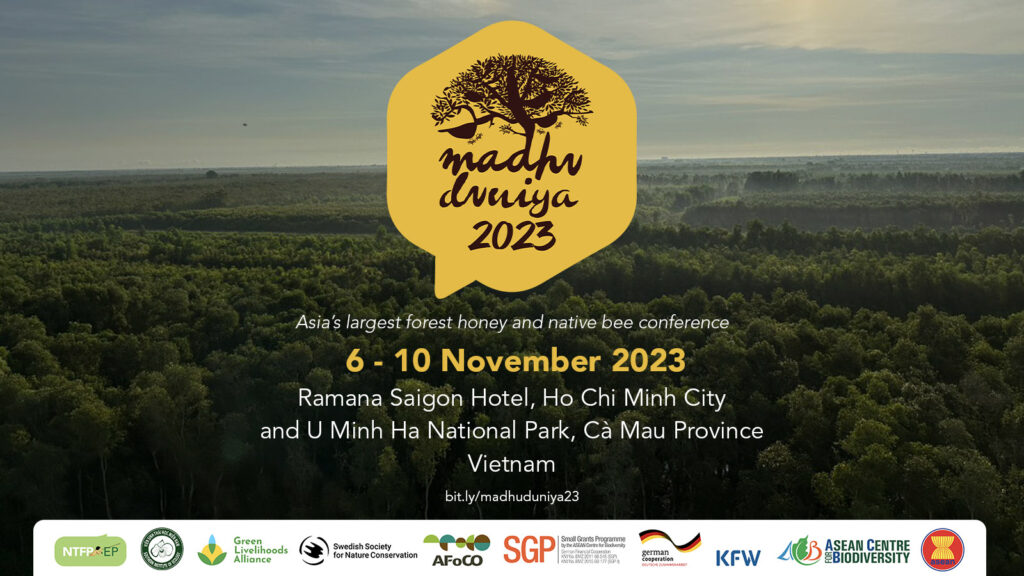
Get ready for an incredible journey into the world of honey as it makes its way to Vietnam in 2023!
Mark your calendars for 6-10 November 2023 as we get ready for an immersive experience in the vibrant world of Asian forest honey and bees. This highly anticipated event will unite honey hunters, producers, advocates, conservationists, researchers, and enthusiasts from around the world, all coming together to delve into the fascinating and diverse world of Asian forest honey and native Asian bees.
Madhu Duniya is a quadrennial gathering of Asian forest honey producers, scientists, private sector players, government partners, supporters and enthusiasts. It is the largest and only regional gathering focused specifically on forest honey of South and Southeast Asia. The term “Madhu Duniya” means “honey world” and was formed by combining the Sanskrit word “madhu” (honey) and the Urdu/Persian word “duniya” (world).
This year’s Madhu Duniya will be held in Ramana Saigon Hotel, Ho Chi Minh City with a field visit to U Minh Ha National Park in Cà Mau province.
Since its establishment in 2007, Madhu Duniya has served as a platform for various stakeholders to discuss growing trends, challenges and opportunities around the subject of forest honey and native Asian bees. Madhu Duniya highlights the knowledge and wisdom of community harvesters and supports the participation of community experts from a broad base of indigenous and local honey groups. Madhu Duniya recognizes forest honey as crucial to rural incomes, a contributor to forest conservation, and an important natural product for human health in Asia and around the world.
Long term, Madhu Duniya aims to increase the knowledge, capacity and connectivity of forest honey gatherers and beekeepers of native bees in Asia towards improving community livelihoods and forest conservation benefits. It also aims to provide a venue for exchange among Asian Native bee stakeholders towards improving value chains, stimulating research and supporting networking, solidarity and collaboration.
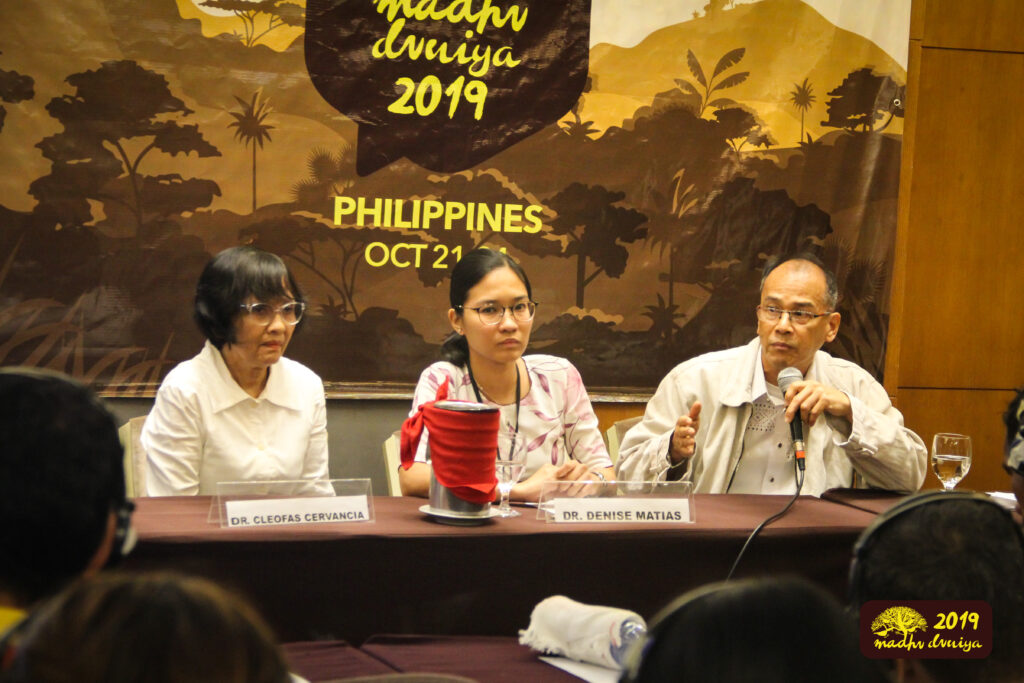
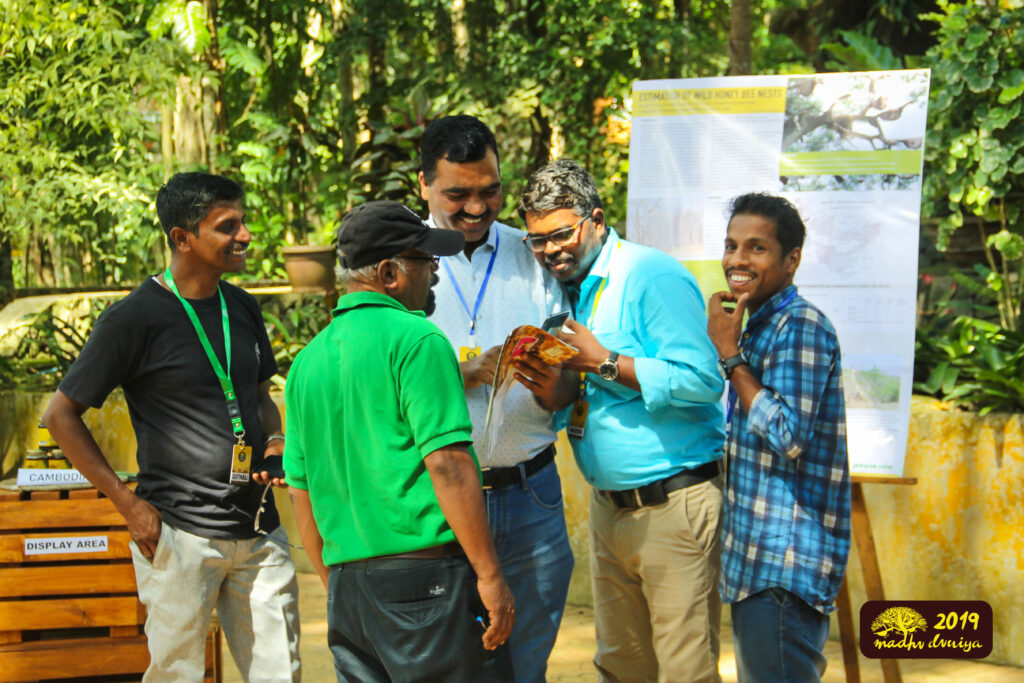
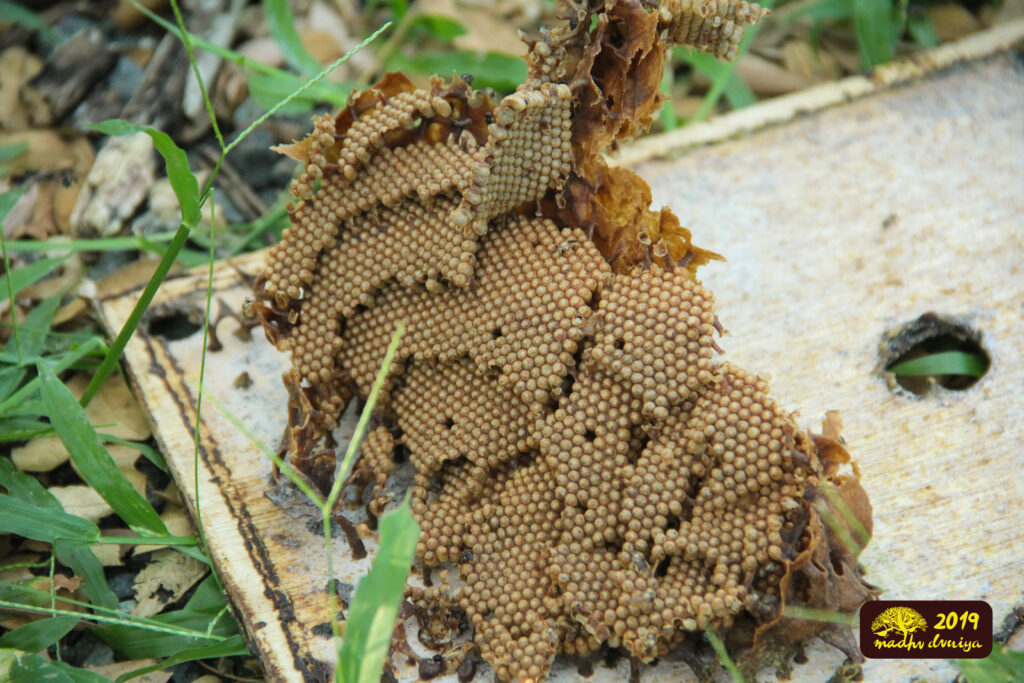
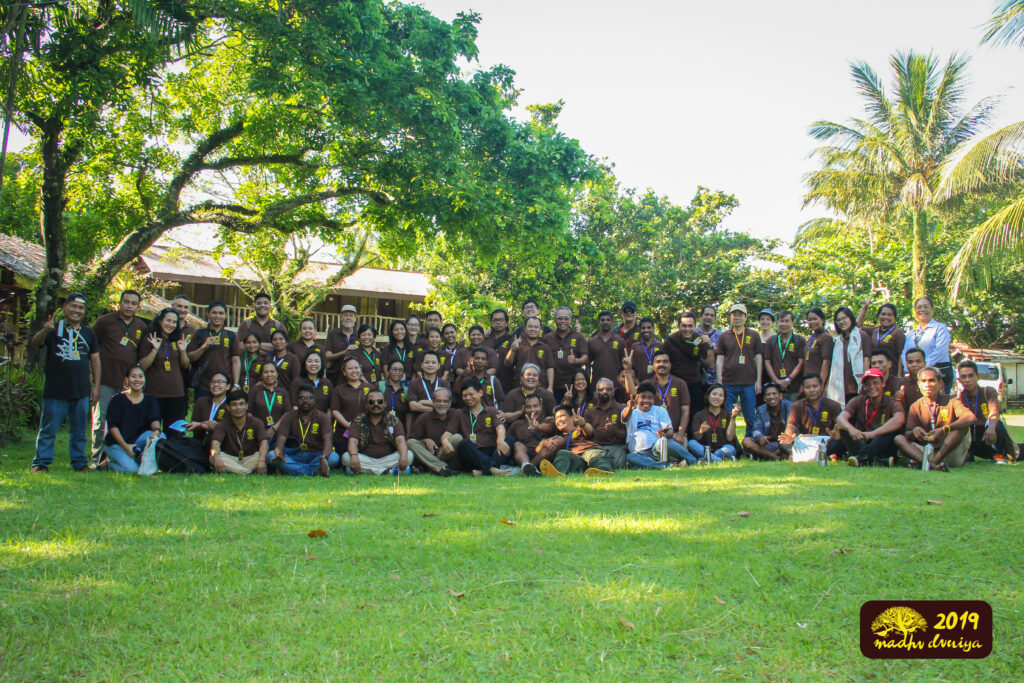
Activities during the previous Madhu Duniya held last October 2019 in the Philippines.
Program of Activities
Below is the schedule of activities for Madhu Duniya as of 7 November 2023. Schedules and details are subject to change. All indicated times are in Vietnam time (GMT+7).
| Date | Time | Activity | |
| 5 Nov Sunday | Whole day | Travel to Ho Chi Minh City Check in at Ramana Saigon Hotel | |
| 6 Nov Monday (Day 1) | 08:30 am – 12:00 pm | Internal program with country partners | |
| 12:00 pm – 1:00 pm | Lunch break | ||
| 1:00 pm -1:15 pm | Science Panel opening program | ||
| 1:15 pm – 2:45 pm | 1st session: Climate Change and Bee Population | ||
| Speakers: • Dr. Orawan Duangphakdee (Thailand) • Eric Guerin (Cambodia) • Dr. Denise Matias (Philippines) Video showing: Apis dorsata conservation in Cambodia by UNESCO | |||
| 2:45 pm – 3:00 pm | Coffee Break | ||
| 3:00 pm – 4:15 pm | 2nd session: Pollination and Pollen Analysis | ||
| Speakers: • Dr. Hien Ngo (FAO) • Dr. Vinita Gowda (India) • Katja Bohm (QSI Germany) | |||
| 4:15 pm – 5:30 pm | Technical poster presentation (over cocktails) | ||
| 6:00 pm – 8:00 pm | Welcome dinner | ||
| 7 Nov Tuesday (Day 2) | 9:00 am – 9:30 am | Opening remarks: • Dr. Le Buu Thach (vice director, Southern Institute of Ecology) • Femy Pinto (executive director, NTFP-EP Asia) | |
| 9:30 am – 10:30 am | Keynote presentations 1. Prof. Dr. Ninh Khac Ban, NTFP researcher and Former Director of International Department, Vietnam Academy of Science and Technology 2. Dr. Phung Huu Chinh, Mountain Bees Development Center 3. Dr. Đinh Quyết Tâm, Vietnamese Beekeeping Association 4. Dr. Jeff Pettis, president of Apimondia (pre-recorded) 5. Mr. Van Trai, Prasat Teukkhmao wild honey group, Kratie, Cambodia & Mr. Long Thet from CBHE, Cambodia | ||
| 10:30 am – 11:00 am | Coffee break | ||
| 11:00 am – 12:00 pm | Thematic highlights • Climate and Bee Population: Eric Guerin • Marketing and Labeling: Nola Andaya (NTFP-EP) • Legal and Policy: (TBD) • Technology/laboratory analysis: Dr. Shiny Rehel | ||
| 12:00 pm -1:30 pm | Lunch break | ||
| 1:30 pm – 3:30 pm | Lotus Ballroom Parallel Sessions: Climate and Changing Landscapes In Asia, especially in South and Southeast Asia, there has not been enough research across the years to make conclusions about the impact of climate change on honey bees. But interviews, related studies observations infer that over the years, forest fires, high unseasonal temperatures, early rains, and severe droughts have grave impacts on native honey bee populations and on honey production in Asia. Such instances cause colony destruction, bee forage depletion and the subsequent decline in swarms. Severe droughts can also trigger early bee migration. Speakers: • Dr. Orowan Duangphakdee (King Mong Kut’s University, Thailand) • Dr. James Makinson (Sydney University, Australia) • Eric Guerin (international consultant) • Mahadesh B (Soliga community, Karnataka, India) | Orchid Ballroom Parallel Sessions: Marketing and Livelihoods Marketing is challenging for honey gatherers and beekeepers who often need to prove authenticity of honeys produced. Country experiences on marketing will be shared. Developing and expanding local and regional (Asian) markets has led to South to South collaborations. The slow food movement has also developed a committee to work to protect bees considering their important role in food production. Finally, the development of an Asian honey flavor wheel will be discussed. Lessons will be drawn from the coffee sector. Speakers: • Nola Andaya (NTFP-EP) • Jessica Hernandez (Slow Food) • Ramon “Chinchin” Uy, Jr. (Slow Food Southeast Asia) • Nicola Bradbear (Bees for Development) | |
| 3:30 pm – 4:00 pm | Coffee break | ||
| 4:00 pm – 5:00 pm | Exhibit/posters Lightning talks per country | ||
| 8 Nov Wednesday (Day 3) | 8:30 am – 10:00 am | Presentations on bee populations Moderator: Dr. Denise Matias 1. Eric Guerin: Pesticides and bees: How do pesticides affect bees? 2. Dr. Pham Hong Thai: Geographical distribution of the giant honey bee Apis laboriosa 3. Eman Sulaiman: Indonesia honey gatherers app on monitoring bee population and nests | |
| 10:00 am – 10:20 am | Coffee break | ||
| 10:20 am – 12:00 pm | Presentations on labeling and protocols 1. Nola Andaya: Forest Harvest Collective Mark updates 2. Bibong Widyarti: Participatory Guarantee System Lestari (Indonesia) 3. Robert Leo: Indigenous Labeling 4. Diana San Jose: ASEAN Protocols on Forest Honey | ||
| 12:00 pm – 1:00 pm | Lunch break | ||
| 1:00 pm – 2:30 pm | Presentations on (Legal) Policy Contexts for honey and bees 1. Yon Fernandez Larrinoa (FAO) – Global policy status 2. Chansouk Doungvilay (AESBO Laos) – Community presentation on policy issues 3. Atty. Edna Maguigad (NTFP-EP) – Policy study specific on honey 4. Corazon A. De Jesus (ASEAN Centre for Biodiversity): Conserving bee habitats – National Biodiversity Strategic Action Plans (NBSAP) | ||
| 2:40 pm – 3:40 pm | Lotus Ballroom Parallel session: Technology and technical matters 1. Dr. Phung Huu Chinh: The technique of catching wild bees (Apis cerena) and raising them 2. Robert Leo: The role of temperature, time of handling of honey | Orchid Ballroom Parallel session: Pollen analysis presentations and discussions 1. Evert Jan Robberts and Dr. Shiny Rehel: Review of pollen analysis of honey samples brought during Madhu Duniya 2019 2. Evert Jan Robberts: Results of the pollen analysis of 6 different honey samples from the Philippines 3. Dr. Shiny Rehel: Different analytical methods to analyze pollen 4. Evert Jan Robberts: Update on the pollen atlas 5. Dr. Pham Hong Thai: Research on the origin of honey in market by pollen grain analysis and atlas | |
| 3:40 pm – 3:55 pm | Coffee break | ||
| 3:55 pm – 5:00 pm | Lotus Ballroom Parallel session: Dr. Vinita Gowda: Practical Demo of Studying Pollination Ecology and Behavior of Bees | Orchid Ballroom Parallel session: 1. Evert Jan Robberts: Microscope pollen analysis demonstration 2. Eric Guerin & Dr. Pham Hong Thai: Rafter beekeeping technical session | |
| 9 Nov Thursday (Day 4) | Morning | Field visit to commercial A. cerana beekeeping site in Tien Giang province | |
| Afternoon | For those who will join the field trip: Travel to Cà Mau via bus (approximately 5 hours) | For those not participating in the field trip: Return to hotel at Ho Chi Minh City | |
| Evening | Check in at hotel at Cà Mau | ||
| 10 Nov Friday (Day 5) | Whole day | Field visit to U Minh Ha National Park • Visit to rafter beekeeper community • Sightseeing at the Mekong Delta • Recommendations and planning • Closing program | |
| 11 Nov Saturday (Day 6) | Whole day | Travel back to Ho Chi Minh City | |
The people behind Madhu Duniya 2023
Emmanuelle “Nola” Andaya
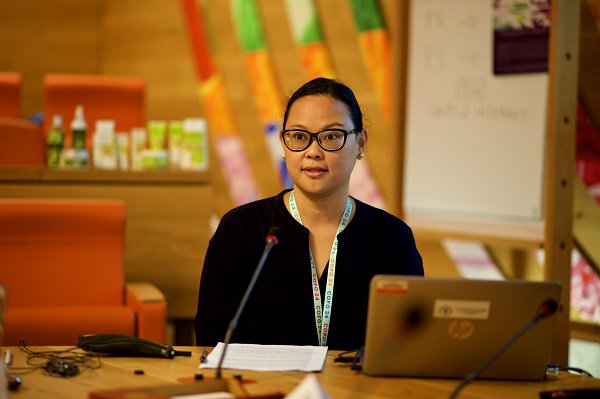
Nola’s work on non-timber forest products, community livelihoods and enterprise development in Southeast Asia spans 20 years, encompassing capacity building, marketing, policy research, strategy and project development. She conceptualized various key projects of NTFP-EP including MODI Modern Indigenous (partnership between urban-based artists and indigenous artisans), Heritage, and the Forest Harvest Collective Mark. She co-established the marketing arms of NTFP-EP including the CustomMade Crafts Center (Philippines) and NatureWild (Cambodia). Her formation is in comparative local development, cultural management, enterprise planning and languages. Current interests include culture and technology in sustainable development, biocultural diversity, traditional crafts, and inclusive creative industries.
Eric Guerin

Eric Guerin is a French biologist specializing in the conservation of native Asian bees, particularly the Asian giant honey bee (Apis dorsata). Based in Cambodia for the past 15 years, Eric has worked with many honey hunting communities in South and Southeast Asia on the dissemination of more sustainable wild honey collection practices and the improving of wild honey value chains. He has also written a book on rafter beekeeping, a technique which provides a safer and more sustainable way of harvesting Apis dorsata honey, as an alternative to dangerous and unsustainable honey hunting.
Dr. Vinita Gowda
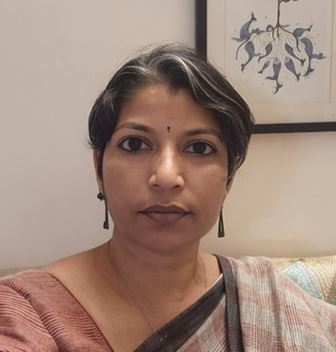
Dr. Vinita Gowda is an evolutionary ecologist and botanist by training focusing on plant-centric projects using molecular, ecological and behavioral tools. She is presently an Associate Professor at the Indian Institute of Science Education and Research Bhopal and her research lab at IISER Bhopal is called Tropical Ecology and Evolution Lab (TrEE lab). Dr. Vinita finished her masters in India and moved to the George Washington University for her doctoral work, and later did postdoctoral work at the National Museum of Natural History, Smithsonian Institution, Washington D.C., and the Singapore Botanic Gardens. She is currently working on several projects whose focus is to understand the role of native bees in pollinating native flora and how seasonality and various other landscape features may be driving the bee-plant interaction in India.
Maria Cristina “Crissy” S. Guerrero
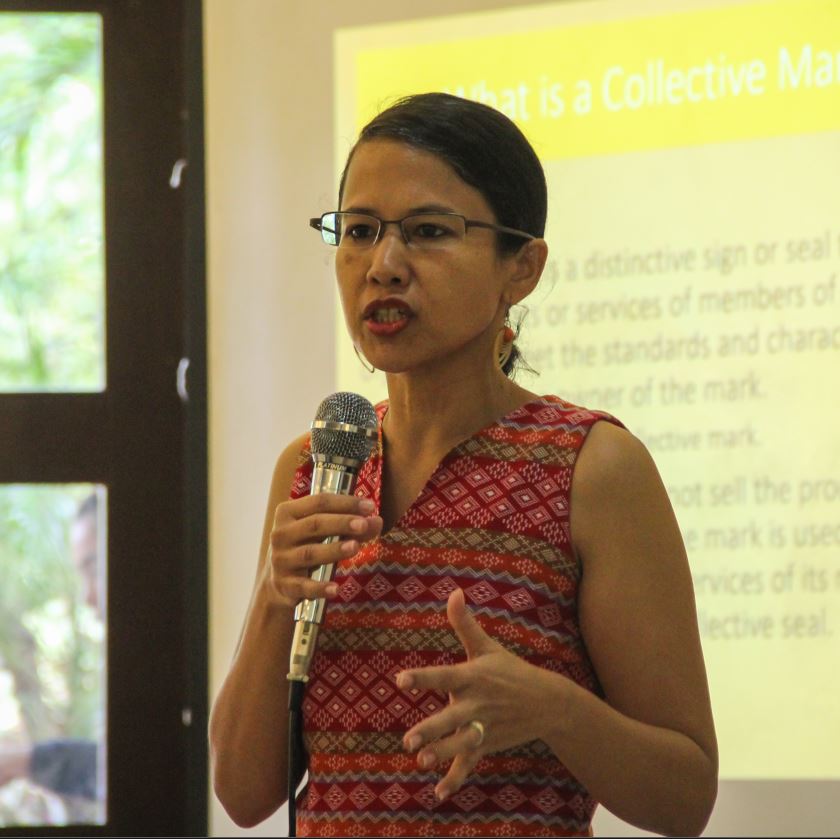
Maria Cristina “Crissy” S. Guerrero is a senior adviser at NTFP-EP covering the thematic area of sustainable climate-adaptive livelihoods. She has worked on community forestry and indigenous peoples concerns over the last three decades. Her interest in regional and global development on Asian bees and honey grew after attending Apimondia 1997, where she saw there was no proper and sustained platform for sharing and supporting honey gatherers of Asian native bees. She has since been part of the organizing committee of Madhu Duniya since the first event in 2007.
Robert Alexander Leo

Robert Alexander Leo currently serves as an Advisor to Keystone Foundation and Aadhimalai Pazhangudiyinar Producer Co. Ltd., having held the position of Deputy Director until December 1, 2019. With 28 years of professional experience, he is a seasoned senior trainer specializing in honey, non-timber forest products, millets, and coffee value chains. He is also a proficient master trainer in organic certification through the Participatory Guarantee System. He has a bachelor’s degree in rural developmental science with a specialization in animal husbandry from Madurai Kamaraj University and a post-graduate degree in arts. Robert’s expertise lies in applying appropriate technology in beekeeping, conducting research, and implementing sustainable and hygienic forest honey collection practices. He imparts training and enhances the capacity of social enterprise members in sustainable pre- and post-harvest handling of NTFPs, as well as value addition of honey and beeswax. He is deeply passionate about integrating rural technologies into agriculture harvests, processing, packaging, and forwarding, with a focus on promoting organic food farming within Indigenous and rural communities across India, including facilitating PGS India organic certification nationwide. Moreover, Robert coordinates a pollinators’ network. Robert was awarded the Madhu Duniya 2015 Award for his dedication to honey hunters and the promotion of indigenous knowledge systems in honey hunting, value addition, bee product utilization, income augmentation for honey gatherers, and bee and habitat conservation. He is also the recipient of the Sir JC Bose Lifetime Achievement Award by Indian Science Monitor for his notable contributions in appropriate technology, revival of traditional organic agriculture, and advancement of Apis cerana beekeeping. Additionally, he received the Sri Jamunalal Bajaj Award in 2013 for his utilization of appropriate technology for rural development.
Dr. Luu Hong Truong

Dr. Luu Hong Truong currently works at the Southern Institute of Ecology (SIE), Vietnam Academy of Science and Technology as its Director. He has done work on databasing biodiversity in southern Vietnam and has led numerous researches on botany, evolutionary biology, genetics and ecology. Dr. Truong is a founder of NTFP-EP Vietnam, while SIE is a member of NTFP-EP Asia and houses NTFP-EP Vietnam, the country host of Madhu Duniya 2023.
Dr. Phung Huu Chinh
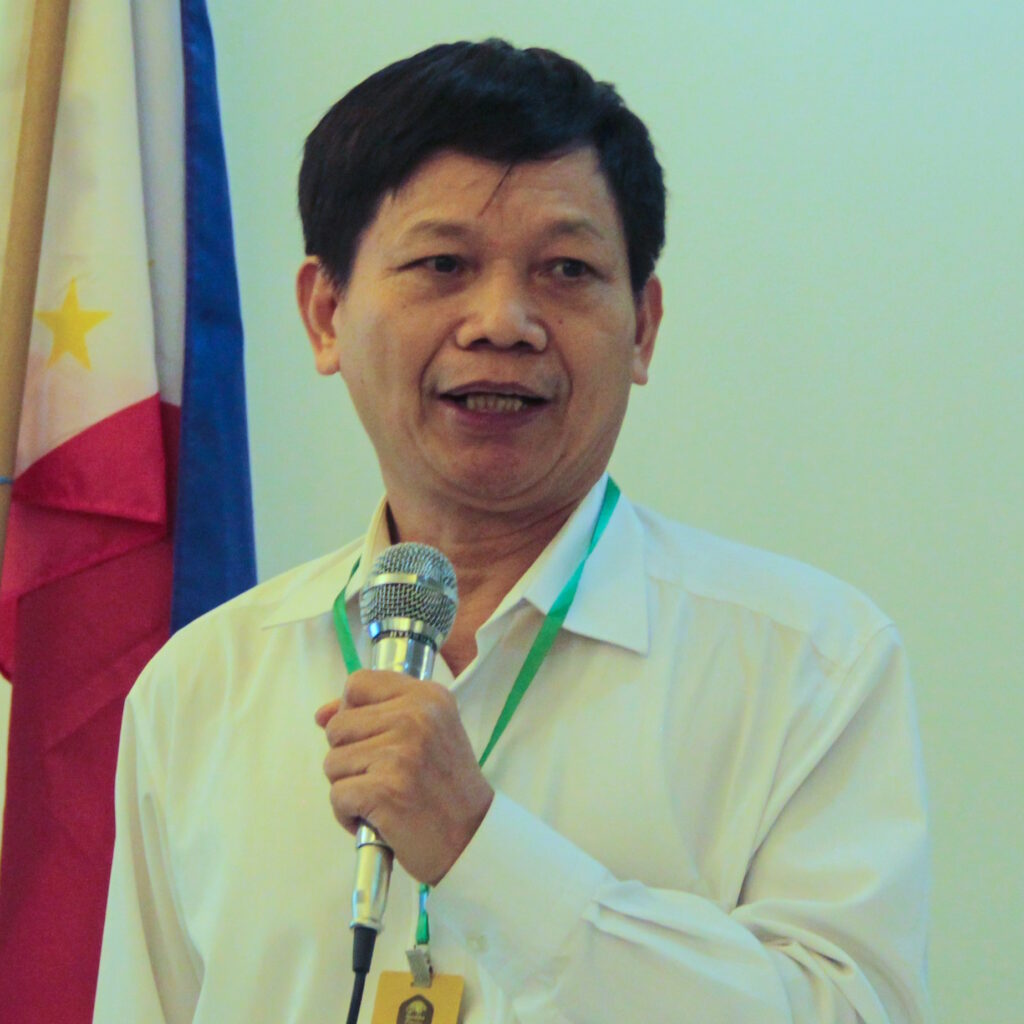
Dr. Phung Huu Chinh is the Director of the Mountain Bees Development Center and former Director of the Bee Research and Development Center in Hanoi, Vietnam. His research focused on disease control in honey bees and selected Apis cerana and Apis mellifera with higher honey production. He has conducted hundreds of Apis cerana and Apis mellifera beekeeping training courses for thousands of beekeepers. He also focuses on studying the biology and distribution of Apis dorsata, Apis laboriosa bees and sustainable honey harvesting methods as well as improving technology of rafter beekeeping. He introduced and exchanged sustainable methods of collecting and processing Apis dorsata honey to Cambodia, Indonesia, Laos and the Philippines.
Shiny Mariam Rehel
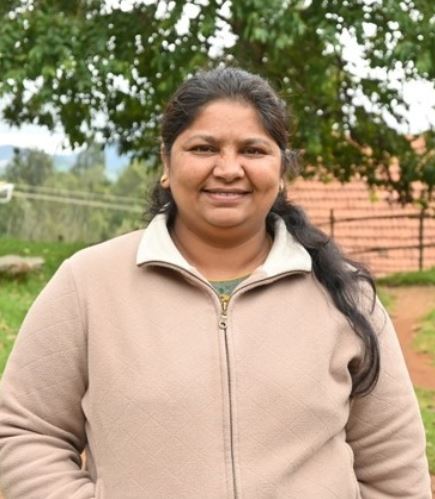
Shiny Mariam Rehel has been working as programme coordinator for biodiversity conservation at Keystone Foundation. Her master’s and PhD training is in botany with a keen interest in plant taxonomy. She joined Keystone in 2003 and her first project at Keystone was the production of a floral calendar for the beekeeping area in the Nilgiris Biosphere Reserve in order to understand which plants are preferred by bees. She later worked on studying the ethnobotany of these areas. In her current role as programme coordinator for conservation, Shiny coordinates activities for conservation education, habitat restoration, beekeeping, and documentation of forest plants. Shiny is working on restoration projects in the Nilgiris with focus in urban and rural areas. She coordinates with team members on raising, propagating and out planting native species appropriate to the habitat and landscape. Through extensive research Shiny documented and published books on forests plants found in the regions of the Nilgiris Biosphere Reserve. She has been trained on Information management at Bees for Development, Monmouth, United Kingdom and training on Pollination techniques conducted by ATREE, Bangalore, India. She has coordinated and successfully completed 11 projects from during 2009-2022. She was awarded the Commonwealth Professional Fellowship in 2018, hosted in the United Kingdom. She plays a key role in coordinating a project supported by Ministry of Ministry of Micro, Small & Medium Enterprises in collaboration with Ashoka Trust for Research in Ecology and the Environment, Bangalore. Darwin Initiative Project, Kotagiri. One of Shiny’s dreams is to create more green space with more native species to make urban and rural spaces pollinator-friendly and for the well-being of the community.
Evert Jan Robberts

Evert Jan Robberts is a Dutch beekeeping expert. He pursued studies in tropical beekeeping at the University of Cardiff in Wales. His extensive work history includes serving as a Dutch volunteer advisor for agricultural projects in Tanzania, Cameroon, and the Philippines from 1978 to 1987. Robberts is a seasoned expert in various domains such as beekeeping, commercial production of bumble bees, pollination of horticultural crops, and organic farming methods, prominently working as a consultant in tropical beekeeping. He authored a notable feasibility study on Philippine beekeeping in 1987. Having been a permanent resident of the Philippines since 2014, he is presently enjoying retirement while implementing responsible farming techniques on his farm. His active engagement is further evident through his roles as both secretary and president of NECTAR (Netherlands Expertise Center for Tropical Apicultural Resources), as well as his membership in the International Honey Commission. Robberts was also involved in the pollen analysis of A. dorsata honey and the production of a pollen atlas on A. dorsata for Madhu Duniya.
Diana San Jose
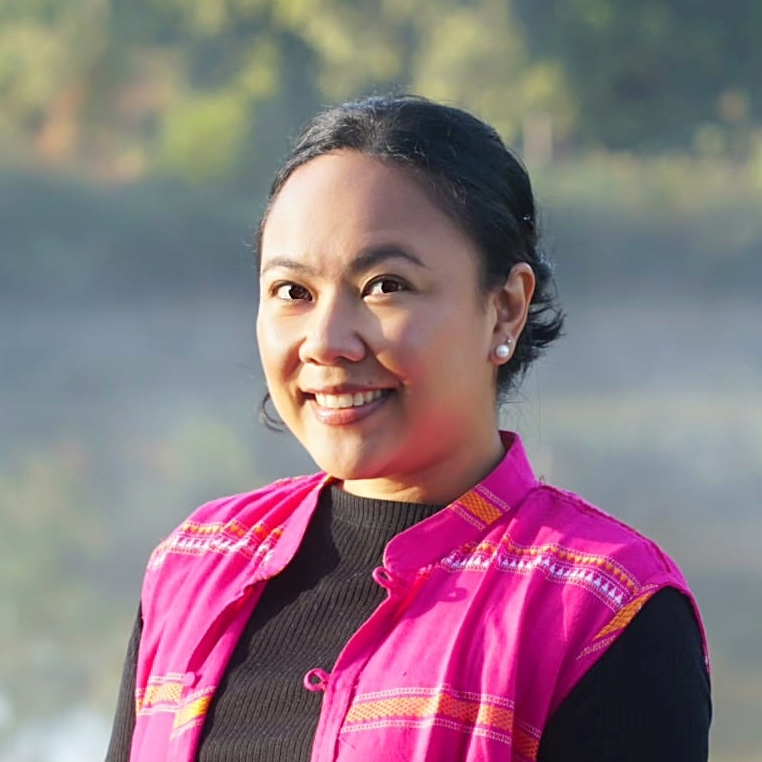
Diana San Jose is NTFP-EP Asia’s Program Officer handling the thematic programs on community-based conservation and indigenous food and health. Her background is in anthropology and she has been working in the development sector for over fifteen years. She has been part of the Madhu Duniya Secretariat since 2019.
Themes
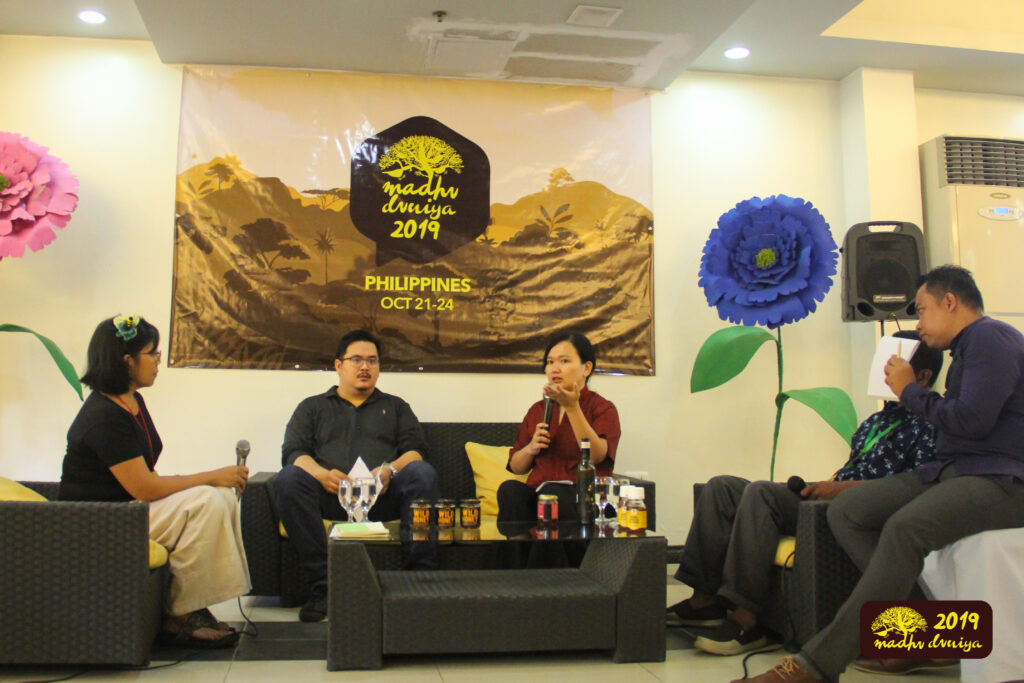
Madhu Duniya 2023 shall feature, among others, the following themes and topics:
- Climate change effect on native bees and honey flow, including discussions on monitoring and evaluation of bee population and status of A. dorsata in different Asian countries
- Forest Harvest Collective Mark (FHCM), quality parameters, and other Participatory Guarantee System (PGS) labeling schemes
- Protocols and standards for A. cerana and A. dorsata
- Pollen analysis and pollen atlas
- Market analysis and marketing strategies in the Asian region, including discussions on conservation and tourism
Climate change effect on bees, honey flow
Through cross-pollination, bees allow 30% of the world’s crops and 90% of the world’s wild plants to thrive. Without bees, many plants would die off, jeopardizing many sources of food. Colony collapse disorder brought global attention to the importance and the fragility of bee populations.
Now, the vulnerability of bees has been exposed due to the observed impacts of climate change. A new study in Europe and North America shows that since the 1970s, 190 miles have been clipped from the southern travel range of bumblebee species, meaning they are not going as far south2. This means bees (that enjoy cooler temperatures) are staying in Northern areas (cooler climates) across Europe and North America, which reduces their ability to cross-pollinate. This could lead to large bands of land failing to receive adequate cross-pollination.
In Northern America, studies have shown that climate change, particularly extreme heat, can alter the scents and colors of plants making it more difficult bees to find pollen and nectar. Habitat loss has shrunk resulting in decreasing hive areas. Climate change causes also the loss in synchronicity bee hatching times with flowering seasons and have dire effects on pollination functions affecting agricultural production resulting in food shortages. Increase in climate temperatures has mean bees and other insects may be more at risk to disease and parasites which thrive in warmer temperatures.
In Asia, especially in South and Southeast Asia, there has not been enough research across the years to make conclusions about the impact of climate change on honey bees. But interviews with Asian bee researcher Eric Guerin provides insights. Through his research over the years, forest fires, high unseasonal temperatures, early rains, and severe droughts have grave impacts on native honey bee populations and on honey production. Forest Fires increasing in frequency and intensity due to extended droughts and high temperatures are likely to impact honey bee populations through colony destruction, bee forage depletion and the subsequent decline in swarms (IPBES, 2018).
Interviews with honey hunters in Mondulkiri, Cambodia in show low honey yields despite an abundance of Apis dorsata colonies. Honey hunters associate this with early rainy season. “Early rains may have leached nectar from the leaves, depriving bee colonies from a usually abundant resource during the seasons” (personal interview Eric Guerin January 25, 2023). This has also affected honey production. In Indonesia, wetter climates have been reported leading to food resources decline of Apis dorsata populations, largely as a failure to produce new queens (Kahono, S. 2011). Decline in honey production was also witnessed.
Water source is crucial to the survival of bee colonies and severe droughts can thus trigger early bee migration. Both in Mondulkiri (personal interview Eric Guerin Jan 25, 2023) and in the Himalayas (CaraDonna, P.J., A.M. Iler, and D.W. Inouye. 2014) , Apis dorsata and Apis cerana respectively migrated or swarmed earlier.
Climate change is also affecting the quality of the floral environment (Kahono S., Chantawannakul P., and Engel M.S. (2018). Forest fires are resulting in the death of bee plants or lower nectar flow. Finally, similar to North American and European studies, Asian honey bees may also be affected by increasing temperatures which enhances the spread of disease and pathogens (Le Conte Y. and Navajas M. 2008 and Reddy P.V.R., Varghese, A. and Rajan V.V. 2012)
FHCM and other PGS labelling schemes
The Forest Harvest Collective Mark (FHCM) aims to guarantee the forest and community source, sustainability and the good product quality of a variety of products harvested by communities from the forest. It covers all NTFPs from the forest whether domesticated or wild. The mark guarantees three parameters: Traceability, Sustainability and Good Quality.
The FHCM is an initiative of the Non-Timber Forest Products – Exchange Programme and its partners. It was an initiative launched in 2015. Collective Marks are signs used to distinguish certain valued characteristics common to the members of an association or cooperative. It is hoped that FHCM will be useful in assisting envisioned members to differentiate their products from others and will assist in making efficient marketing activities which will then be done collectively. Though FHCM envisions to cover a range of product categories, the first product standards that were developed were on forest honey (Apis dorsata). The first small business to be audited and certified using the FHCM A. dorsata standards was Hutan Lestari honey producer group in Sumbawa island in Indonesia. They sell honey with the brand “3 lebah” or 3 bees. Since 2021, Vietnamese producer groups (Lam Dong and Gia Lai provinces ) have also started to evaluate themselves against the FHCM standards. In Sept 2022 the Dung’kno community in Lam Dong province upgraded their honey processing facilities and conducted a pre-FHCM audit processes with the aim of meeting the FHCM standards and being to use the FHCM label for marketing purposes.
It is important to share the results of this community forestry labeling model and to discuss the challenges and opportunities it provides to forest honey gatherer groups. FHCM is one labeling initiative, others have been developed for forest honey communities and these can also be shared during Madhu Duniya 2023.
Protocols for honey – A. dorsata, A. cerana
In 2020, the ASEAN Guidelines on Sustainable Harvest and Management Protocols for select NTFPs was approved by the ASEAN Ministers in Agriculture and Forestry (AMAF). These guidelines serve as a primary reference for NTFP management protocols in the region to further guarantee sustainable management of NTFP resources for markets and relevant stakeholders.
The guidelines included protocols for non-timber forest products (NTFPs) such as bamboo, rattan, forest honey (Apis dorsata), resins, and fruits. These guidelines were made with the support of NTFP-EP. They seek to ensure the sustainable utilization and conservation of important NTFPs in the region. The conservation of bee species is thus crucial and ASEAN did best to include forest honey as one of the first NTFPs to develop sustainable management guidelines for.
It has been the interest of NTFP-EP and ASEAN Member States (AMS) to expand the list to include protocols on sustainable harvest management of other important NTFPs. In 2021, NTFP-EP received funding support from the ASEAN Centre for Biodiversity (ACB) for a project on “Promoting values of Biodiversity-based Products (BBPs) through sustainable protocols and community forestry labelling processes.” This made it possible for virtual consultations to be held exploring the topic of expanding FHCM standards and the NTFP protocols to include A. cerana bee species.
A preliminary document was borne out of the sharing and consultation session by experts who pooled together their expertise and experiences towards the development of sustainable harvest protocols for Apis cerana honey. The inputs from the session is also meant to feed into the standards for the Forest Harvest Collective Mark. In Madhu Duniya 2023, we hope to continue to build on these inputs to further support the conservation initiatives of community-based honey harvesters who deal with A. cerana and initiate a process on A. cerana protocols to be endorsed by the ASEAN.
Pollen analysis, pollen atlas
In Madhu Duniya 2019, a pollen analysis session was held to explore the characterization of honey from the various participating Asian countries. The idea of a South-Southeast Asian-wide characterization study of honey through pollen analysis and the compilation of a pollen atlas3 of native Asian bees was discussed during the session. Since then, analyses has been made on sample honeys from different parts of Asia.
Although the vision of a pollen atlas for Asian forest honey has yet to materialize, steps have been taken to partner with experts and laboratories to further understand the characterization of Asian forest honeys.
Results of tests from analyses done by QSI Germany and tropical bee consultant Evert Jan Robberts will be presented during Madhu Duniya 2023. It is hoped that this will be a jump-off point for further discussions on how pollen analysis can be done in a participatory way at the local level and eventually consolidating these into a regional pollen atlas focused on Asian forest honey.
Market Analysis and Market Strategies
Asian Forest Honey has various values associated with it including medicinal values, sustainable forest management values and cultural values to name a few. But considering that forest honey is not well known nor even recognized in certain regions, marketing then poses a challenge. Though marketing attempts of Forest Honey in several countries had quite good results initially, such institutional partnerships borne more than a decade ago, are much less in recent times.
That being said, though the pandemic has raised the awareness for improved immunity that can be provided through forest honey, the marketing landscape has changed in the past few years. Digital technology has taken over the scene and recent players are now not so visible. A review of the current forest honey market structure is then important. This will assist in designing marketing strategies that will support small beekeepers and forest honey gatherers. These themes will be discussed in Madhu Duniya 2023.
The pandemic has changed the behavior of consumers all over the world and accelerated the transition of markets to digital and online platforms. This has brought about new challenges as well as opportunities to community-based NTFP enterprises (CBNEs), including honey groups. In order to remain competitive in the market, CBNEs need to be up to speed with current market trends and tools. The Marketing Track of Madhu Duniya 2023 will provide participants an opportunity to be updated and to and exchange information and strategies with colleagues and experts from the regions. The track will include topics that responds to the current marketing needs of participating groups, as well as developing initiatives such as the community-led product guarantee, the Forest Harvest Collective Mark, Marketing Tools for Social Forestry Products, including Digital Marketing, that will be published by the ASEAN Social Forestry Group.
Contact Us
For more details about the event, registration concerns, media inquiries and other concerns, please contact the secretariat at madhu.duniya@ntfp.org.



